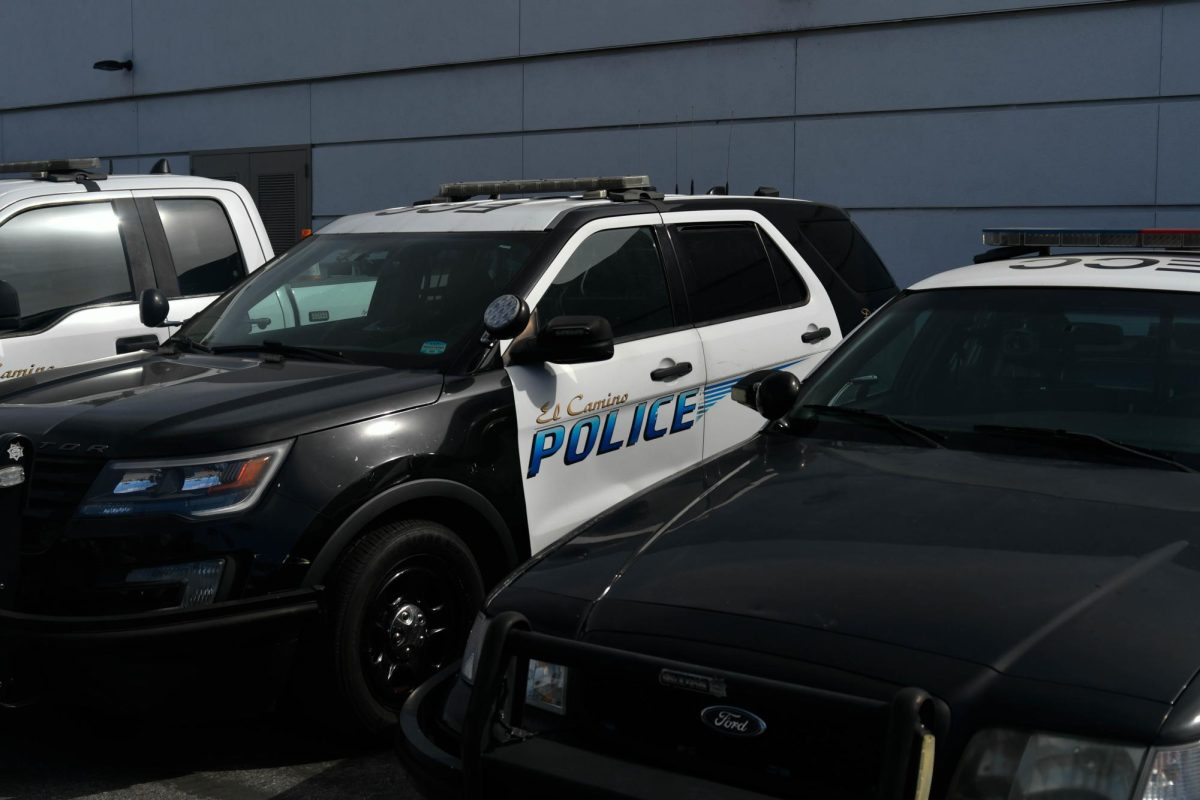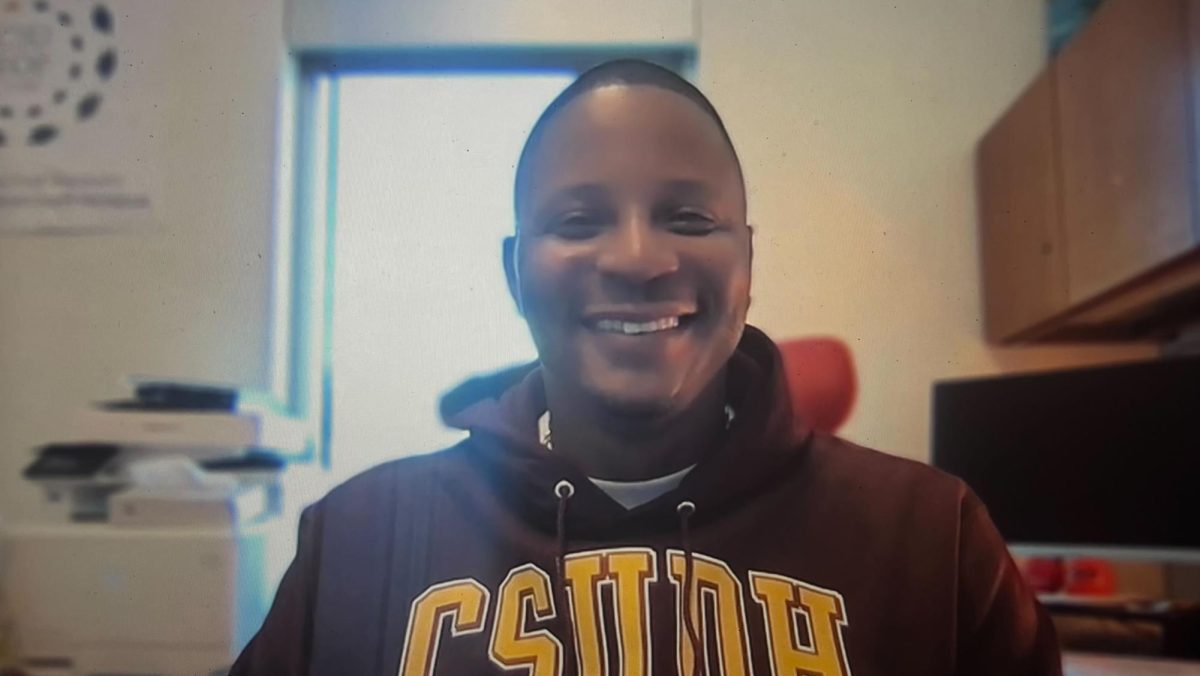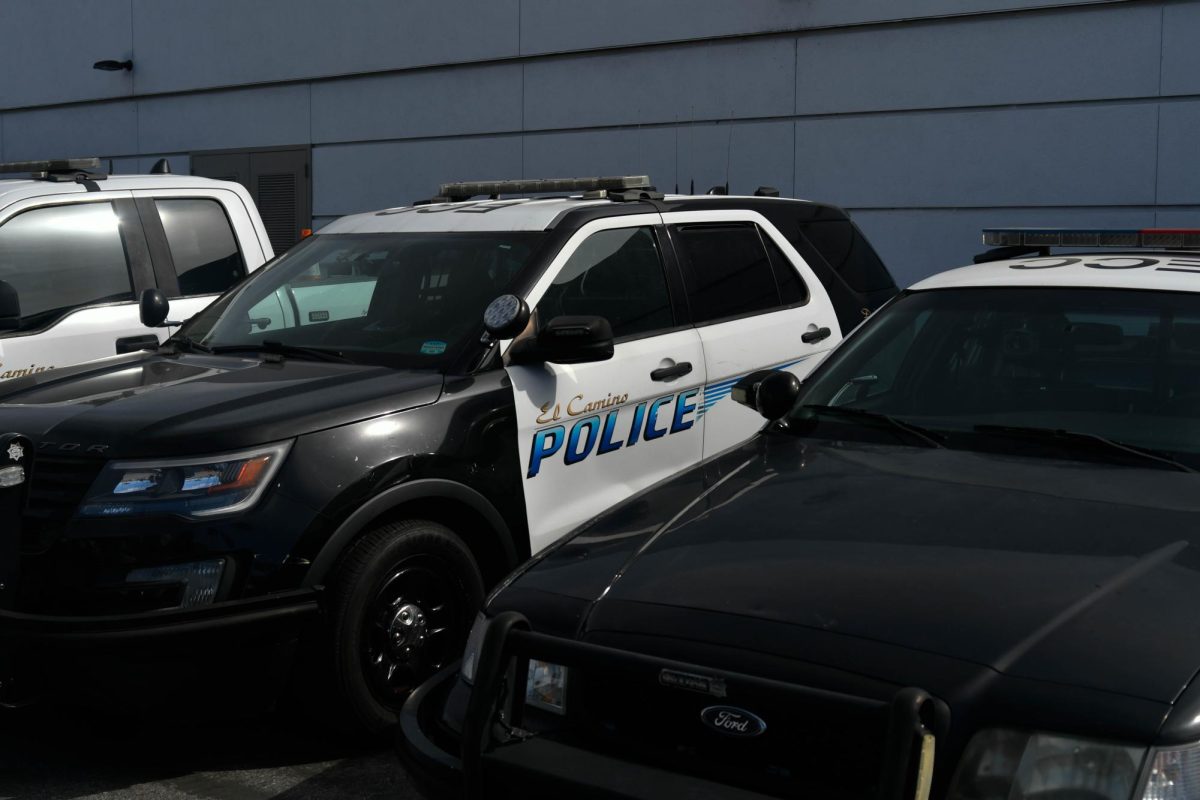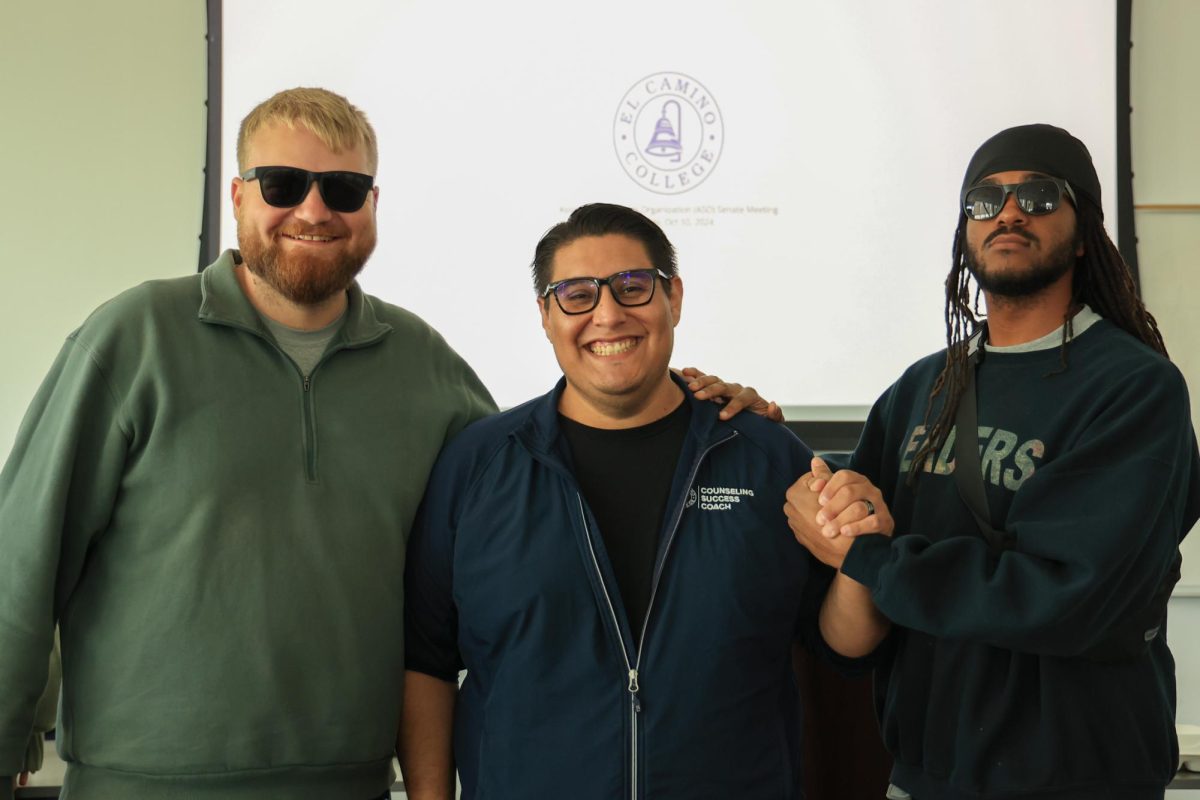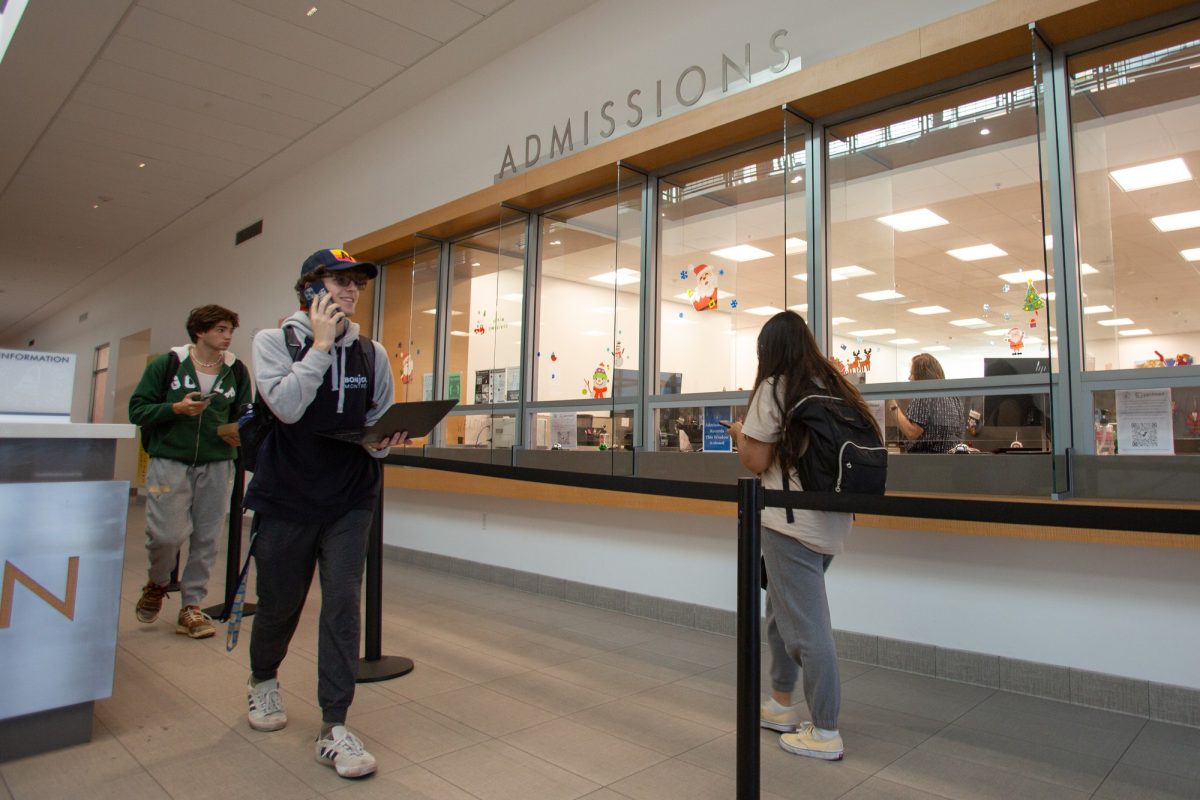Whoever says, “You can’t learn anything by watching TV,” is wrong.
Any time of the day, students may turn to Channel 8 to watch educational and informative programs produced by the college’s educational consortium.
“What we do is intersperse programming that is produced here at El Camino,” Howard Story, coordinator of media, said. “We have a program that we call the ‘El Camino College Magazine,’ and what this magazine does is it features a department on campus once a month.”
At the moment, a film is being produced with the paralegal business program on campus.
“What we will do is interview faculty members, even possibly students, and we will try to get footage of students working in the class. Then we will intersperse that program with the instructional program so that people may get a feel for El Camino,” Story said.
Aside from informative programs being played on-air, there are also television courses that students may watch if they are enrolled in that specific subject.
“We have the distance education program where students may take college courses, but they don’t have to be on campus,” Story said. “It’s very beneficial for the disabled population, single mothers with children and for those who work a lot. That way, they may still take fully accredited college courses.”
These distant education courses have the tendency to fill up fast due to their benefits and convenience.
“There was one semester when I had a few problems on my hands and I wasn’t able to attend school on a regular basis,” Martin Cruz, child development major, said.
“That semester was not completely ruined because I was able to take two television courses and an online class and the best part was that I did not have to be on campus until I was instructed to,” he said.
The television courses run for approximately 28 minutes and there are normally 26 of them. Essentially, students will watch two programs per week.
“If, for whatever reason, a student misses the program, they may come to the library and may check out a video tape of the program they missed and watch it there,” Story said.
This summer, only two of the television courses will be offered on Channel 28, PBS. Most of the classes are shown seldom on regular television due to the high cost of putting them on these channels.
“You don’t have to have cable access, but what you need is a way to see the programs. The consortium also puts a limited number on public access television because it’s so costly,” Story said.
Many of the programs are filmed on location, while others are filmed in the studio and are professionally done.
“The playback of our channel is not done here on campus. When El Camino was franchised and given this channel, part of the agreement was that the playback of it was the responsibility of Torrance Cable, but El Camino is responsible for the programming,” Story said.
The graduating class of 2005 may find some of their faces on cable television since the event is covered by the city of Torrance.
“This year, however, we’re going to try to make an agreement with the city of Torrance so that we may play it on the El Camino channel,” Story said.
Every semester, courses offered include history, political science and sociology. Laura Wells, English major, takes a TV-based course because she feels “burned out” by previous semesters.
“I feel more relaxed now that I am taking this television-based class. I’m pretty sure I’ll take another television class in the future,” she said.
College TV
What: Television programs about college, educational programs for distance-education courses.
When: All day until 1 a.m., every day.
Where: Channel 8 all year, Channel 28 during summer session.
Find out more: See catalogues for distance education courses.



